This is the second of a three-part series on how to live an environmentally responsible lifestyle. This article will help you make eco-friendly choices as you shop.
Buy as little plastic as possible. Corn plastic, which is a biodegradable substance, is now being used for everything from travel mugs to ball point pens. Every time you buy something made out of plastic, think about the 2,000 years it will take that item to biodegrade.
 Buy local. There are so many reasons to do this. When you stop at a local farm market for corn or peaches, chances are that produce was very recently picked, retaining valuable nutrients (not to mention flavor). Not only does the food taste better, it is better for you. In addition, the fossil fuels used to transport that product from Florida to Ohio, for example, are almost non-existent when you buy local.
Buy local. There are so many reasons to do this. When you stop at a local farm market for corn or peaches, chances are that produce was very recently picked, retaining valuable nutrients (not to mention flavor). Not only does the food taste better, it is better for you. In addition, the fossil fuels used to transport that product from Florida to Ohio, for example, are almost non-existent when you buy local.
Go to the library. I love books and usually have at least two, if not three, going at the same time. I have purchased hardcover books that I want in my personal library. But novels and business books of interest can be picked up at any library. Libraries are wonderful resources – and oh so cost-effective! Most have story hours, craft times, book clubs for all ages and a host of other activities.
Shop at used clothing stores. Because children outgrow clothes so quickly, it doesn’t make sense to buy them a new outfit every time the sleeves are too short or the jeans have a rip. Most of the clothes you can purchase in department store are imported, adding to the environmental waste created to transport them to this country. Adults, too, benefit from this practice – and many people find the “thrill” of a great bargain at a used clothing store addicting! Plus, you can simplify your own wardrobe by taking your used clothing to the same stores where you shop.
Look for recycled sport equipment. If your child has ever signed up for hockey or track, you know how much the equipment can cost! Be kind to your budget, and find a local used sporting goods store, or just place a small classified ad in your local paper. Chances are, you can pick up a gently used baseball uniform, knee pads or soccer ball at a fraction of the price of a new one. (Hint: This goes for musical instruments, too!)
Use recyclable bags. Did you know that well over one billion plastic bags are given out free each day? But nothing, as the old adage goes, is really free. The actual costs paid by our environment and society for the fleeting convenience of unlimited, free, single-use plastic bags is astonishingly high. Not only does it take massive amounts of fossil fuels to produce the bags, they take over 1,000 years to biodegrade. Sea turtles, whales and other marine mammals die every year from eating discarded plastic bags mistaken for food. Turtles think the bags are jellyfish, their primary food source. Once swallowed, plastic bags choke animals or block their intestines, leading to an agonizing death. On land, many cows, goats and other animals suffer a similar fate when they eat plastic bags while foraging for food. Because they are so lightweight, the bags can become airborne, causing unsightly litter in trees.
White is right. If you typically purchase paper towels, napkins and toilet paper decorated with pretty designs, think about switching to plain white. Today’s technology is producing chlorine-free, soft and absorbent paper towels made from recycled paper. The ink used to print the designs on paper is often petroleum-based. By purchasing white paper products, you can reduce our independence on fossil fuels.
For more eco-friendly ideas, visit www.Lehmans.com

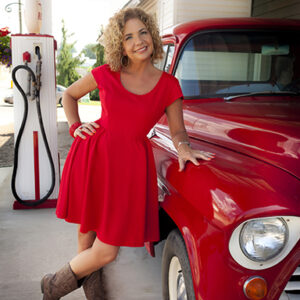


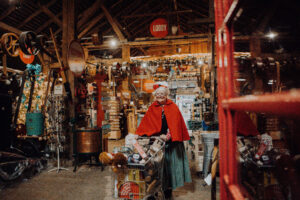

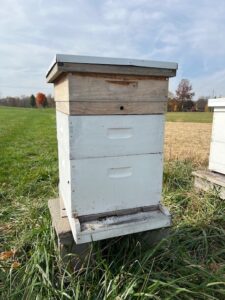









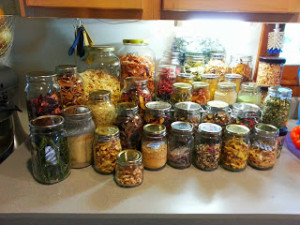
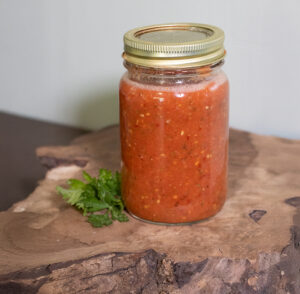
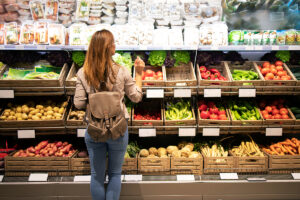






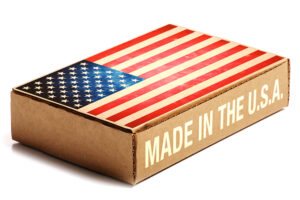


All the above are great inspiration and are already part of our normal routine here at Ancient Artisans Village. I would like to throw a few more out there……: )
*For those with electric water heaters, turn them off for many hours of the day. We only use our water heater for bath and dishes from 6-10 pm and it makes about a 60.00 a month difference to our bill.
* check your local farms for free manure to bolster sustainable agri practices that also help reduce the farmers methane contribution
* 3 decades ago whilst living in north Yorkshire, UK, folks there were frugal in ways I had never encountered as a teen in America. One of the things they routinely did was to save the plastic packaging and rinse out, store and reuse. Money was not abundant there and one wouldnt dream of spending part of the food budget on plastic storage bags.
*Barter is one of the most valuable concepts from our past that we can bring into life today. We barter our skills for goods and services from others regularly, we barter our goods evenly for the goods of others that we do not produce here, and we barter time, giving value equally to each man’s time so that we can work more efficiently. I would encourage all to participate in some form of barter board, local radio swap, internet exchange forum, etc. When you attend your local farmers market, take business cards or some form of self representation with and consider that vendors may be interested or actually prefer to barter for something you have or can do.
* Educate yourself as to the true cost of items that you choose to purchase… the cost in the manufacturing process to the planet, the cost of transporting it, reconsider the actual cost to the planet, whether or not you can find some less expensive, recycled item, or do without it altogether.
* Re-think how you shop, even if you have stores near you. In times past, many would shop for the few items they couldnt produce only a few times a year. While that may not be doable for most, every trip to town that can be eliminated reduces the cost to the planet as well as your transportation/fuel. Perhaps decide on a fixed amount to allot for fuel and then determine how many trips per month you can afford to make with that allotment. You will spend less on fuel, less at the stores, and have more time to accomplish goals at home.
* For those like us who cannot afford a whole house solar set up and choose not to rely on a fossil fuel generator either, we have decided to respond this way: first, reduction of electrical consumption eg. rainwater catchment with a solar water pump to eliminate as much need to run the 220 deep well pump, second, smaller solar applications eg, a panel with inverter large enough to run the well pump and refrigeration then as funds allow, begin to expand the solar crossover.
* Living a “Green” life begins from within. While there are many external things we can “do” to green our existence, the essence of green living is a change in the awareness of the inner self to the the relationship of oneness that we are in with all life one the earth. To truly live green is to live conciously and intentionally in harmony with all. A great man once said “as a man thinks in his heart, so he is….” The path to greening our existence here begins in the thoughts and hearts of men. Wherever the heart purposes the form will follow. It will require a falling away of culture, tradition, and forms that we have become very comfortable with. But for those who desire for the old ways of harm to pass the challenges will be wlecomed.
We are the people we have waited for; be the change you want to see.